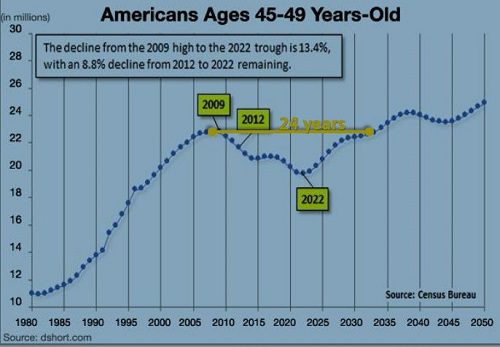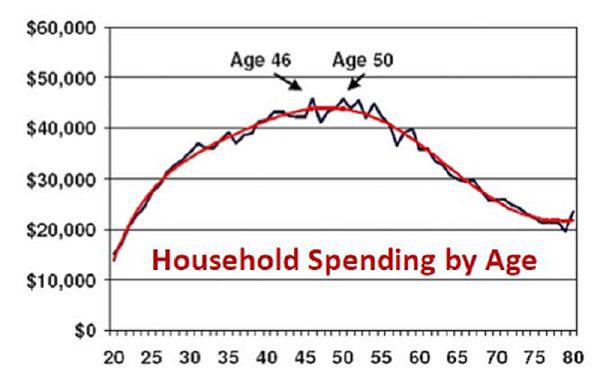In the big picture economically, it may not matter who is elected in 2020, because the U.S. economy is poised to starting booming in 2022 and continue through 2050… no matter which party is in power due to the growing Millennial population.
That is the message from Tim Costello, CEO of BDX, a giant homebuilder consortium. How does Costello know economic good times are still ahead? Demographics … pure and simple.

The ebbs and flows of the U.S. economy are primarily driven by the size of the population and when they reach their peak spending age, which is when they are in their late 30s to mid 40s. So, there are currently 83 million Millennials in the U.S. That age demographic is now larger than the Baby Boom generation, and those individuals, born between 1980 and 2000, started reaching their peak spending age in 2017 and will continue to 2030.
Read Next: It’s Time to Develop a New Generation of Audio Consumers
“Millennials are now in control,” says Costello. “They represent 24 percent of the U.S. population. They are all now about 25 to 35 years old so for the next 25 years, the U.S. economy will grow. It won’t matter who is president. Remember the Reagan years? Remember the prosperity? Everyone thought he was a god. He was just lucky that he was president during the peak spending years for Baby Boomers!”
Costello says the specific year when peak spending by Millennials starts to kick in is 2022, when the first of the generation reaches the age of 46. That spending will continue all the way through 2046!
Is President Trump ‘Lucky’?
That means Trump’s economic boom might similarly be just the luck of the draw driven by demographics and not necessarily policy. It also means the “inevitable” economic swoon that integrators and manufacturers anecdotally seem to be apprehensively waiting for may not happen at all. And if it does happen, it might be very mild and short-lived.

His message to integrators: Start targeting Millennials! They tend to get married later and start families later, 83 percent of them sleep with their cellphones, and 74 percent of them expect to purchase a home in the next five years. They are an entitled generation that will likely gravitate to urban communities with lots of technology, but very few of them have any hands-on skills.
“They never worked on a car with their dad like Baby Boomers did,” he says.

















